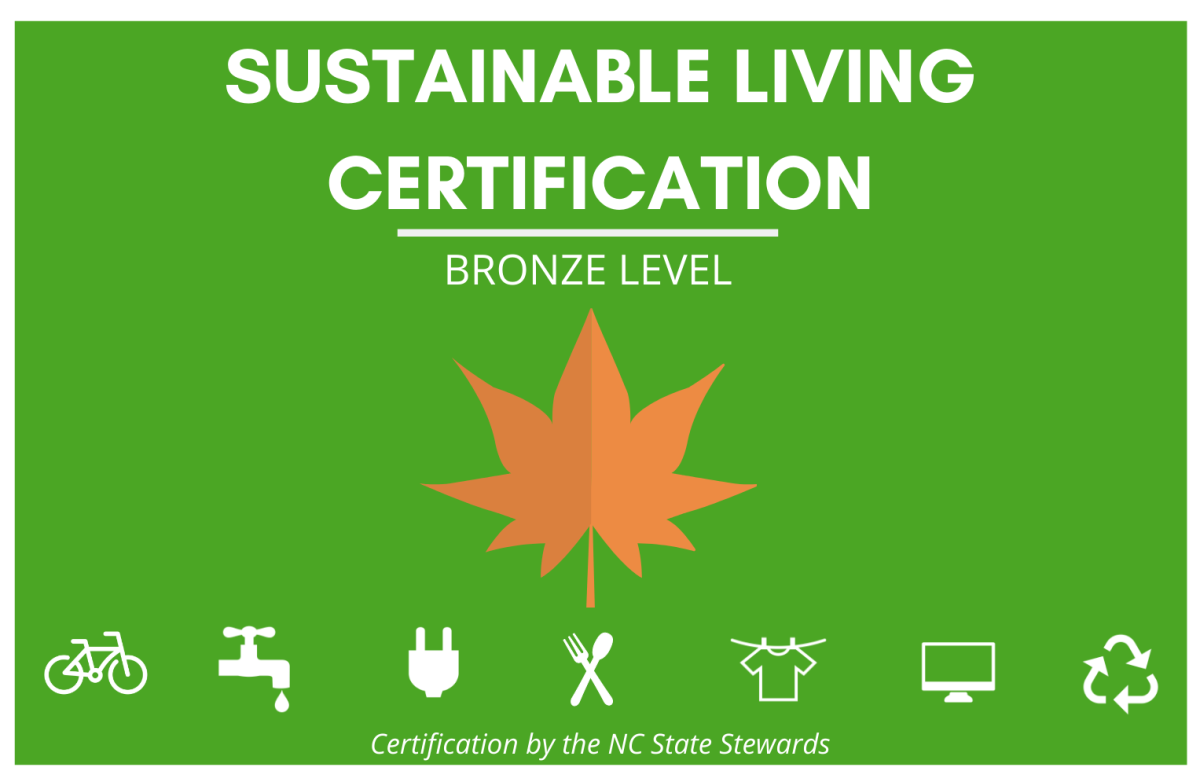
Courtesy of Alie Akins
sustainable living certification
The sustainable living certificate is an award presented to students throughout the year that is meant to promote sustainable living on and off campus. Students have the opportunity to receive one of three levels of certification by participating in the NC State Sustainability Stewards online program, which is run by the NC State Sustainability Stewards, a group of 40-50 students.
Madeline Samet, a temporary research technician, post-baccalaureate student at NC State and the founder of the sustainable living certification program, brought the program to NC State after she transferred to the University in the spring of 2019. According to Samet, the sustainable living certification is mirrored off of a similar program from Oberlin College and Conservatory called the Green Room Initiative and was originally called the Green Dorm Initiative.
Alie Akins, a second-year studying nuclear engineering and international studies and the leader of the sustainable living certification program, stated the main goal of the certification program is to educate students both on and off campus about their impacts on the environment and about what it means to live sustainably. It also aims to connect students who are passionate about the same environmental issues with one another.
Students can participate in the program by taking a survey on the sustainable living certification website. The survey asks questions about various parts of the student’s life in order to assess things such as their energy use and transportation habits. Participants are given points based on how their actions impact the environment, and their total score is used at the end to assess their understanding and appreciation for sustainable living.
Students who demonstrate a level of understanding and appreciation for sustainable living are awarded one of three levels of the certification, the bronze leaf, the silver leaf or the gold leaf, based on their final score. Samet said giving out physical leaves gives the program a social aspect.
“[I hope that] you would post it on your door or something, and people could walk by it and be like ‘Hey…that looks really cool. I want one of those! How do I do that?’” Samet said. “It becomes a community effort, adopting sustainability behaviors, which is really exciting.”
According to Samet, the increase in students living remotely due to COVID-19 has greatly expanded the scope and reach of this program since then. However, she hopes the program will continue to grow and expand in the future, not only within the University, but also through people spreading it locally.
For more information about sustainable living, visit the NC State Sustainability Stewards website here. To participate in the sustainable living certification program, visit the certification website.